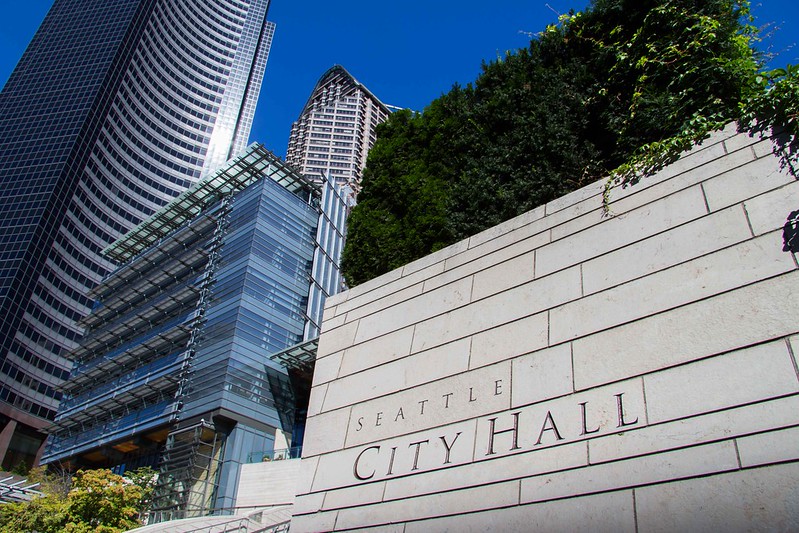The Seattle City Council’s Select Budget Committee recently debated a proposed 2% capital gains tax to support food and housing programs for low- and middle-income residents. The response to the tax has been mixed, with concerns raised about the need for more revenue, potential negative impacts on the business industry and tech talent retention, and uncertainties about the outcomes of current spending on these programs. The proposed tax comes as the city is finalizing its 2025-2026 budget, with Mayor Bruce Harrell calling for $8.3 billion in spending to address a $270 million hole in the general fund.
City councilmember Cathy Moore is leading the charge on the proposed capital gains tax, citing the growing unmet needs of financially vulnerable residents in Seattle. She emphasized the struggle many residents face in keeping up with the high cost of living in the city, particularly in the face of growing income inequality. While some councilmembers share Moore’s concerns, there are reservations about the timing of the tax and the effectiveness of current programs. Councilmember Rob Saka called the proposal “the right idea at the wrong time” and stressed the importance of demonstrating a return on investment for existing tax dollars.
The proposed capital gains tax would impact a subset of tech employees and entrepreneurs in Seattle, particularly those who receive stock options or equity as part of their compensation packages. The Washington Technology Industry Association has raised questions about the tax, expressing concerns about its potential impact on funding programs and advocating for further discussion on its expansion. The Seattle Chamber of Commerce also questions the need for tax increases, emphasizing the necessity of assessing the results of current programs and maintaining the city’s economic competitiveness.
Cristobal Young, an associate professor of sociology at Cornell University, has researched the impact of tax policies on migration patterns among wealthy individuals. While there may be a small effect on elite migration in response to tax increases, Young suggests that the benefits of social services funded by a capital gains tax may outweigh the costs. The debate over tax policies and their effects on migration and innovation is ongoing, with some pointing to examples such as Jeff Bezos’ move from Seattle to Miami as a potential response to tax considerations.
To address the current revenue gap in Seattle’s general fund, Mayor Harrell plans to utilize the city’s Payroll Expense Tax, known as JumpStart, which targets payrolls at large companies. Councilmember Moore proposed the capital gains tax as a means of generating additional revenue without burdening lower-income residents. The proposed tax is based on the statewide capital gains tax that Washington voters recently supported, albeit at a lower rate and with limitations on its scope. The tax is expected to be implemented in 2026, with revenue collection beginning in 2027.
The debate over the proposed capital gains tax in Seattle reflects broader discussions on taxation, innovation, migration, and social services. As the city grapples with budget shortfalls and growing needs among vulnerable residents, elected officials, business leaders, and community members are navigating competing priorities and concerns. The outcome of these debates will shape the city’s approach to revenue generation, public services, and economic competitiveness in the years to come.


